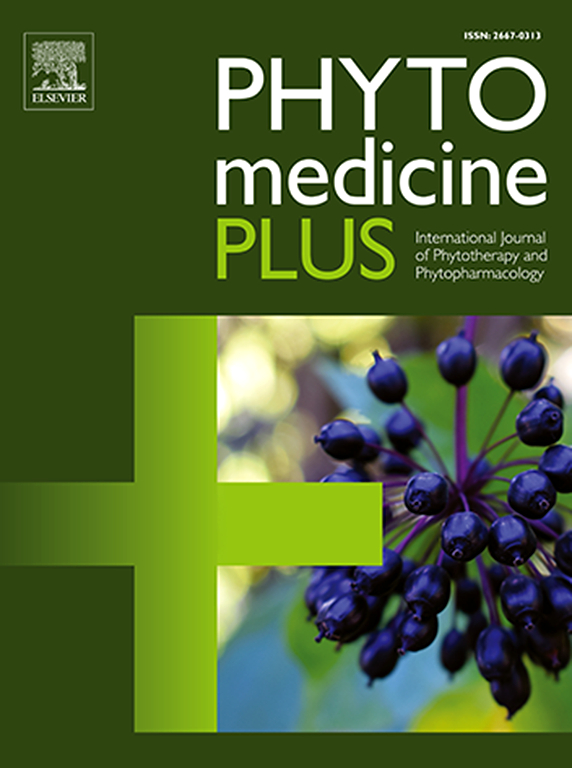Role of dietary phytopharmaceuticals across the globe to alleviate the Alzheimer’s disease: mechanism-based approach
Q3 Pharmacology, Toxicology and Pharmaceutics
引用次数: 0
Abstract
Alzheimer disease is the most prevalent neurodegenerative disorder, affects a significant portion of the elderly population, with current treatments primarily focusing on symptom relief rather than disease progression. This review paper explores the role of dietary phytopharmaceuticals in alleviating Alzheimer's Disease (AD) through a mechanism-based approach. The paper emphasizes the importance of diet in influencing brain health and the potential of phytochemicals, the bioactive compounds derived from plants to provide neuroprotective, anti-inflammatory, and antioxidant benefits. Key phytochemicals such as curcumin, resveratrol, and apigenin are highlighted for their roles in reducing amyloid plaque formation, enhancing neuronal survival, and modulating inflammatory responses. The paper also discusses the complex interplay between diet, gut microbiota, and neurodegenerative processes, suggesting that a balanced diet rich in antioxidants and healthy fats may mitigate AD risk. Furthermore, it addresses the challenges of bioavailability and pharmacokinetics of phytopharmaceuticals, proposing that future researchers work to enhance therapeutic efficacy. The review concludes that integrating dietary phytopharmaceuticals with conventional treatments could offer a comprehensive strategy for AD management, paving the way for future research to elucidate molecular mechanisms and develop targeted interventions.

全球膳食植物药在减轻阿尔茨海默病中的作用:基于机制的方法
阿尔茨海默病是最普遍的神经退行性疾病,影响了很大一部分老年人,目前的治疗主要侧重于症状缓解而不是疾病进展。本文从机制的角度探讨了膳食植物药在缓解阿尔茨海默病(AD)中的作用。本文强调了饮食在影响大脑健康方面的重要性,以及植物化学物质的潜力,植物化学物质是从植物中提取的具有神经保护、抗炎和抗氧化作用的生物活性化合物。关键的植物化学物质如姜黄素、白藜芦醇和芹菜素因其在减少淀粉样斑块形成、增强神经元存活和调节炎症反应中的作用而被强调。本文还讨论了饮食、肠道微生物群和神经退行性过程之间复杂的相互作用,表明富含抗氧化剂和健康脂肪的均衡饮食可能会降低AD的风险。此外,它解决了植物药物的生物利用度和药代动力学的挑战,建议未来的研究人员努力提高治疗效果。综上所述,将膳食植物药物与常规治疗相结合,可为阿尔茨海默病的治疗提供一种全面的策略,为未来研究阐明其分子机制和开发有针对性的干预措施铺平道路。
本文章由计算机程序翻译,如有差异,请以英文原文为准。
求助全文
约1分钟内获得全文
求助全文
来源期刊

Phytomedicine Plus
Medicine-Complementary and Alternative Medicine
CiteScore
3.70
自引率
0.00%
发文量
178
审稿时长
81 days
期刊介绍:
 求助内容:
求助内容: 应助结果提醒方式:
应助结果提醒方式:


